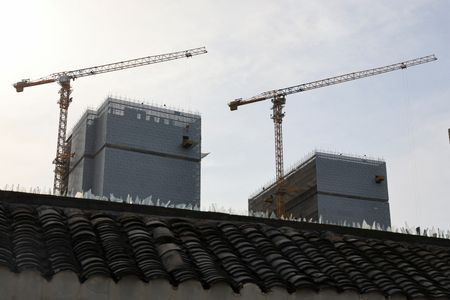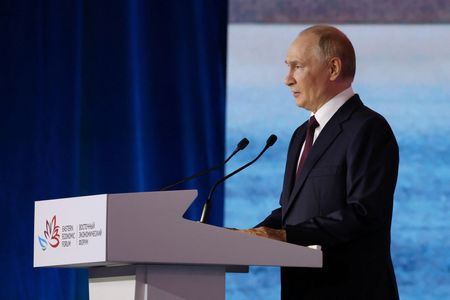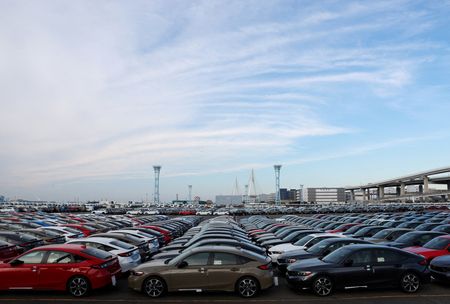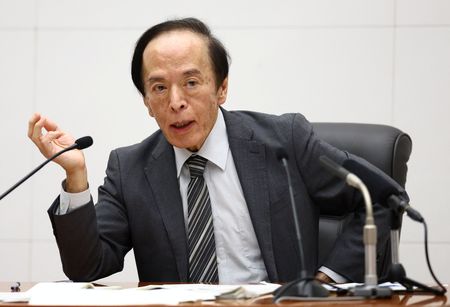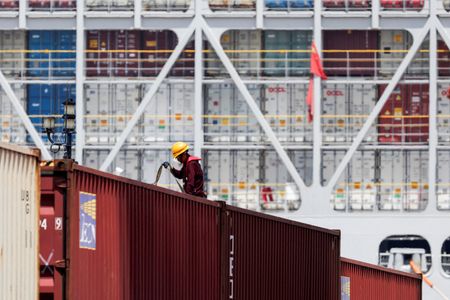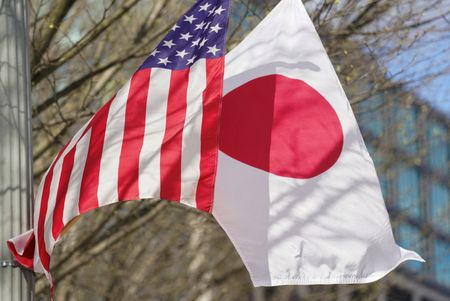By Joe Cash and Kevin Yao
BEIJING (Reuters) -China on Wednesday passed a new law aimed at boosting confidence in the private sector and strengthening its role in the economy amid heightened trade tensions with the United States.
The Private Economy Promotion Law was approved by China’s top legislature, state news agency Xinhua reported.
The private sector is “a vital force in advancing Chinese-style modernization, a key foundation for high-quality development, and an important force in building China into a modern socialist power and realising the great rejuvenation of the Chinese nation,” Xinhua cited the law as saying.
It said the legislation, to take effect on May 20, will ensure fair market competition and promote the growth of both the private economy and private entrepreneurs.
The law reaffirms Beijing’s “two unswervingly” stance – to unswervingly consolidate and develop the public sector and to unswervingly encourage, support and guide the development of the non-public sector, according to Xinhua.
China will implement a system for market access, under which all types of economic entities, including private firms, will be able to enter the market on an equal footing, Xinhua reported.
The government has in recent months unveiled a raft of measures to support the depressed private firms and the economy, which has been reeling from weak domestic consumption and a destabilising debt crisis in the property sector.
Such moves signal a shift in Beijing’s approach to its tech giants and a departure from a regulatory clampdown four years ago.
TECH SECTOR
In February, President Xi Jinping held a rare meeting with some of the biggest names in China’s technology sector, including Alibaba founder Jack Ma, urging them to “show their talent” and be confident in the power of China’s model and market.
China will support the role of private firms in promoting scientific and technological innovation and building a modern industrial system, Xinhua reported.
Private firms will be encouraged to strengthen research in line with China’s strategic needs and to develop core technologies and cutting-edge innovations, it added.
The private sector in China, which competes with state-owned companies, contributes more than half of tax revenue, over 60% of economic output and 70% of tech innovation, official estimates show.
Chinese private firms have been driving technological breakthroughs, highlighted by the meteoric rise of AI startup DeepSeek, as leaders aim to secure the nation’s technological self-reliance amid U.S. restrictions.
Financial institutions should develop financial products and services tailored to the private economy, increasing credit supply for well-established private firms, Xinhua said.
Many private investors are reluctant to invest in the face of a fragile economic recovery.
In the first quarter, investment in the private sector edged up 0.4% from a year earlier, trailing behind a 6.5% rise in the state sector, official data showed.
China’s top policymakers have pledged to support firms and workers most affected by the impact of triple-digit U.S. tariffs and urged the country to prepare for worst-case scenarios.
(Reporting by Joe Cash and Kevin Yao; Editing by Saad Sayeed and Ros Russell)

